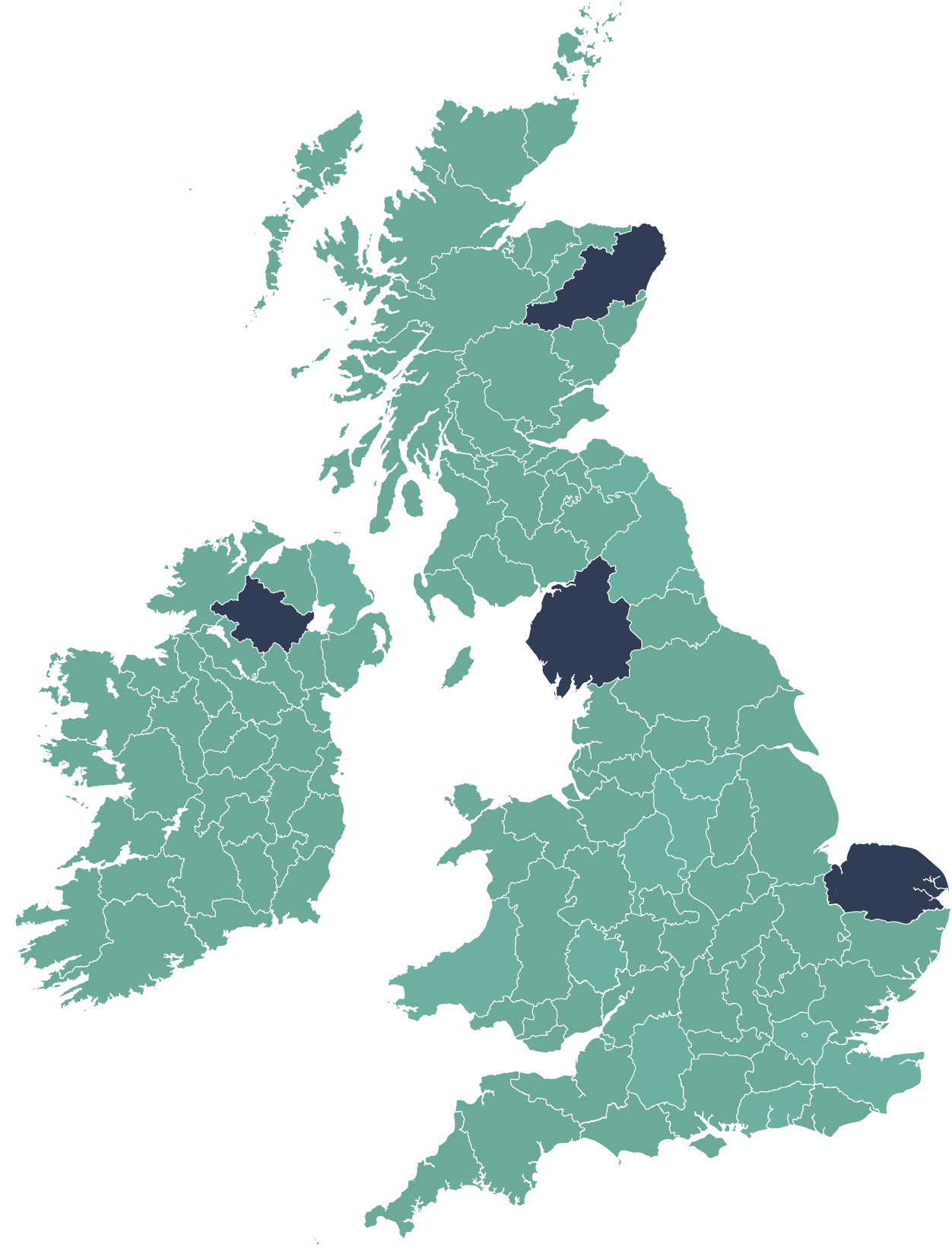Coolstays supported the planting of 800 climate resilient trees across the UK in 2023-24
Coolstays is working in partnership with GreenTheUK and the Royal Forestry Society (RFS) to plant new climate resilient trees across UK woodlands. This project focuses on excellence in woodland management, working with foresters and aborists to ensure we are planting for the future with knowledge being shared from one generation to another.
Planting for the future means nurturing skills that will protect woodlands from pests, diseases and improve resilience to climate change. 41% of England’s woodlands are unmanaged or under-managed, which poses threats to the health and sustainability of woodlands. Coolstays is helping to support tree planting rooted in knowledge of UK woodlands, looked after by experts.
The Committee on Climate Change recommends woodland cover is increased to a minimum of 17% by 2050, requiring 30,000 to 50,000 hectares a year of woodland creation. This will store carbon, increase biodiversity, flood control and create a low-carbon route to increasing the resilience of the rural economy.
This planting season, 2023-24, the UK has seen 11 named storms, according to the met office highlighting the need to act each planting season to protect and restore UK woodlands.
This year, Coolstays has planted 800 climate resilient trees in the UK to help take climate action.

Tree Species Planted:
200 trees planted in Cumbria
Many of the trees in this important ancient woodland were broken, damaged or blown over by Storm Arwen. The new trees in this woodland have been planted to help increase the woodland’s resilience to storm damage and quickly replace the woodland habitat that was lost in the storm. This is a particularly important site for native red squirrels, who live and breed in this woodland. The trees have been specially chosen to ensure a continued supply of pinecones (one of the squirrels’ favourite foods) and suitable habitat for building nests (dreys).
290 trees planted in Aberdeenshire
This woodland was badly damaged in 2019 by Storm Arwen. The storm took out several pockets of trees within the woodland. As part of this project, damaged and fallen trees have been replaced with a mix of evergreen and deciduous trees. Smaller trees, such as aspen, willow and rowan will form an understory that will be particularly beneficial to local wildlife. Above this, faster growing trees such as spruce, larch, fir and cedar will form a canopy and help protect trees from further storms.
290 trees planted in Norfolk
As part of this project, newly planted trees are protected using a natural (plastic free) deer repellent. This repellent will deter deer from nibbling young trees, something that can cause trees to die or become unhealthy. Fir and chestnut trees have been planted in between existing chestnut, beech and oak trees. This will help to create a woodland with varying structure and different ages of trees. This variation will help to create resilience to rapid climate change.
20 trees planted in County Tyrone
The woodland in this active quarry is being expanded with newly planted trees that will join up with other small areas of woodland, connecting habitats and increasing biodiversity. The aesthetics of this new woodland will benefit the local community and increase environmental wellbeing, as well as diversifying the wildlife within the woodland itself.

UN's Sustainable Development Goals
As a GreenTheUK partner, you support projects that are in line with the UN Sustainable Development Goals.

Take urgent action to combat climate change and its impacts.

Sustainably manage forests, combat desertification, halt and reverse land degradation, halt biodiversity loss.















































































.jpg)
.jpg)
.jpg)
.jpg)
.jpg)
.jpg)
.jpg)
.jpg)
.jpg)
.jpg)
.jpg)
.jpg)
.jpg)
.jpg)
.jpg)
.jpg)
.jpg)
.jpg)
.jpg)
.jpg)
.jpg)
.jpg)
.jpg)
.jpg)
.jpg)
.jpg)
.jpg)
.jpg)
.jpg)
.jpg)
.jpg)
.jpg)
.jpg)
.jpg)
.jpg)
.jpg)
.jpg)